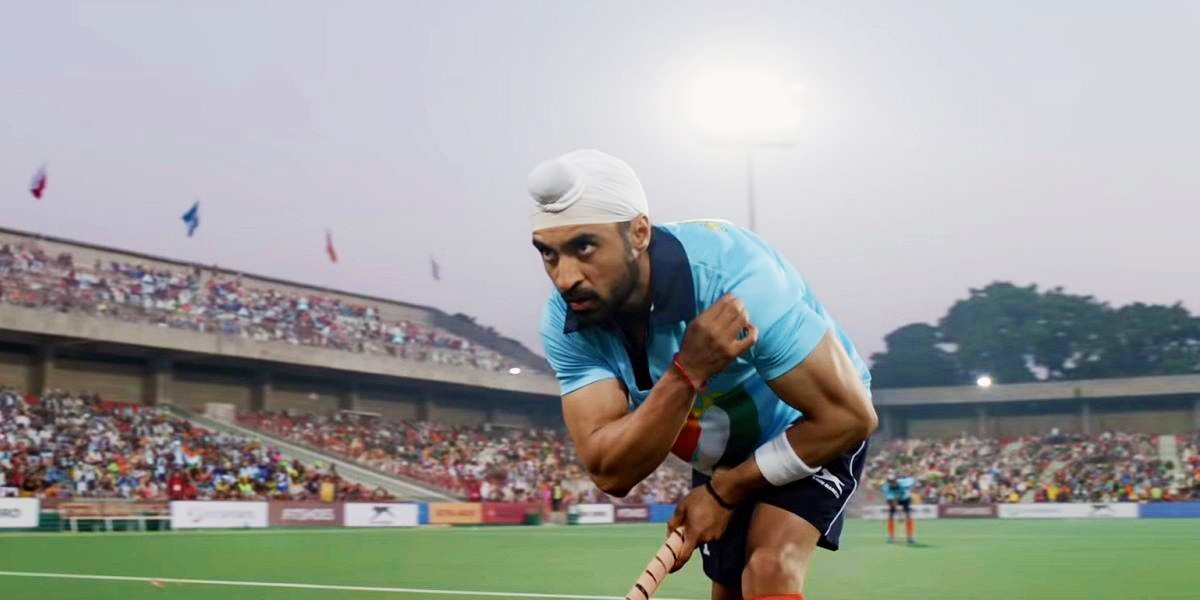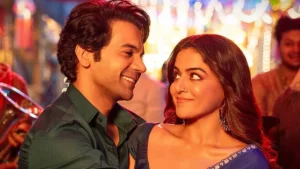
An Indian sports biopic. That is one genre definition which gives me jitters. To the point that I wouldn’t know how to react to the overt dramatization and subsequent filmmaking lapses that they (generally) employ to create theatrics out of scenarios that are otherwise ordinary and often plaintive. Shaad Ali’s Soorma throws no surprises, besides perhaps the startling absence of a high decibel background score and even louder characters – both of which are common elements in Hindi films with Punjabi protagonists.
Set in Haryana, Soorma takes off in the ‘90s where we see children and youngsters striving hard to ace the game of hockey. Not only is it shown as a respectable sport to be played, but the film also associates the player’s employability in the public sector if he/she makes it big as a seeded national player. Sandeep Singh (Diljit Dosanjh) takes to the sport after a mellow meet-cute with the petite yet agile Harpreet (Taapsee Pannu), who is training to enter the National team. The impulses here are far from convincing for a fact that the director takes to severely underplay the romance. Plus, the couple gets sporadic moments which are barely enough to ignite any spark. Indeed, the progression of their relationship is smooth and it turns a bit more convincing towards the midpoint where Singh returns home after a massive international victory.
Designed half-heartedly as a love story, Soorma lacks the cinematic thrust of a commercial potboiler like, say, Sultan, if one must call for a comparison. As the crux of the plot goes, Singh meets with a fatal accident which jeopardizes his career. Soon after, there is a brief encounter between him and Harpreet in the hospital post which the latter decides to hop off to pursue greater things, dropping a bizarre excuse to her (forever) flabbergasted mother. These are moments when we actually end up questioning the ‘love’ in this supposed love story. Further complicating the process, Shaad Ali also chooses to make his leading lady (Pannu) the narrator. Soorma, for sure, closes the arc towards the finale but Harpreet’s absence (both as a narrator and also as a key element in the story) for significantly long stretches renders this decision pointless.
Talking about the family in the film, we get to see a rather well-cast ensemble playing small yet defined parts. Be it with the protagonist’s brother’s (Angad Bedi) failure in making to the national team or the father’s (Satish Kaushik) struggle in making ends meet, there are moments that we wish were focussed more upon. There is a sequence of a heightened altercation between Singh and his brother, which is amongst the film’s highlights. The silences and the need for apologies in the family unit largely work in letting us warm up to the Singh family’s down-to-earth ways. To be noted is the scene where Singh returns from Poland after recovering from a state of paralysis. The focus alternates between him and his mother (who, otherwise, is the lowest stakeholder in the scheme of things), a mid-shot leading to an affectionate embrace. Other family members join in for a group hug while his brother looks on. The camera soon pans on to the tricolour that stays hoisted right behind him, subtly hinting us about what lies ahead.
Soorma derives a good dose of drama from Shankar-Ehsaan-Loy’s awe-inspiring music and original score. Highly instrumental in amplifying the proceedings, the musical numbers (with exemplary lyrics by Gulzar) do not distract us one bit from the film’s central leanings. It also needs to be noted how Soorma is an oddly edited film. Right from the lazy way its scenes transition one after the other or about the existence of absolutely avoidable bit moments, editing is one department which saddles the film badly. The way the film handles the crucial climactic match, in particular, is startling, to say the least. While it is shot (not choreographed) decently, you easily get a hint how those aren’t the most flattering angles or frames to make way to the final version, if at all they intended to converge so many emotions in that very sequence. It also doesn’t help that the match and the 3-4 key emotional stakeholders are at different locations and the editor has to make do with montages, ensuring that we do not lose interest in the game but the reactions remain captured. The sound design (Rishi Oberoi), too, is lacklustre for most parts of the film whereas the production design is well-researched (Sharmishta Roy).
Essentially a performer’s triumph, Diljit Dosanjh leaves no stone unturned in making Soorma a personal journey for himself. Uninhibited and an absolute natural when the camera is on, Dosanjh is possibly a DOP’s dream come true. Consistent throughout, the actor wades through the uneven tides in Sandeep Singh’s life with notable ease. Despite having a talented supporting cast around him, it is Dosanjh’s solo moments that are easily the best in Soorma, particularly the one where he dials Harpreet’s number and talks to her in exasperation while in intercuts we see the phone ringing in full blast at her residence. Taapsee Pannu is brilliant in a part which does not do much justice to her efforts. Angad Bedi is effective and so is Satish Kaushik. Vijay Raaz, appearing in five odd scenes, is a real scene stealer.
Uninspiring could easily be the word for Shaad Ali’s method of directing this rather inspiring story. He does throw several conventional cinematic tropes, resorts to panoramic camera angles and props to reiterate his characters’ intents. However, these bits do not linger much as they come with a definite been-there-seen-that baggage. Furthermore, the simplistic texture of the screenplay (Suyash Trivedi, Shaad Ali and Siva Ananth) is of no help in exploring the story, the milieu and its earthiness beyond surface levels. Unsurprisingly enough, Soorma ends up as a film that barely knows what it wants to be – a patriotic story of a sportsman, a love story of two sportspeople or a simple family drama.
Rating: ★★

